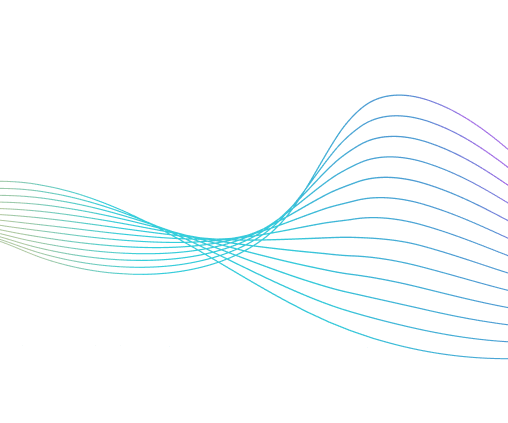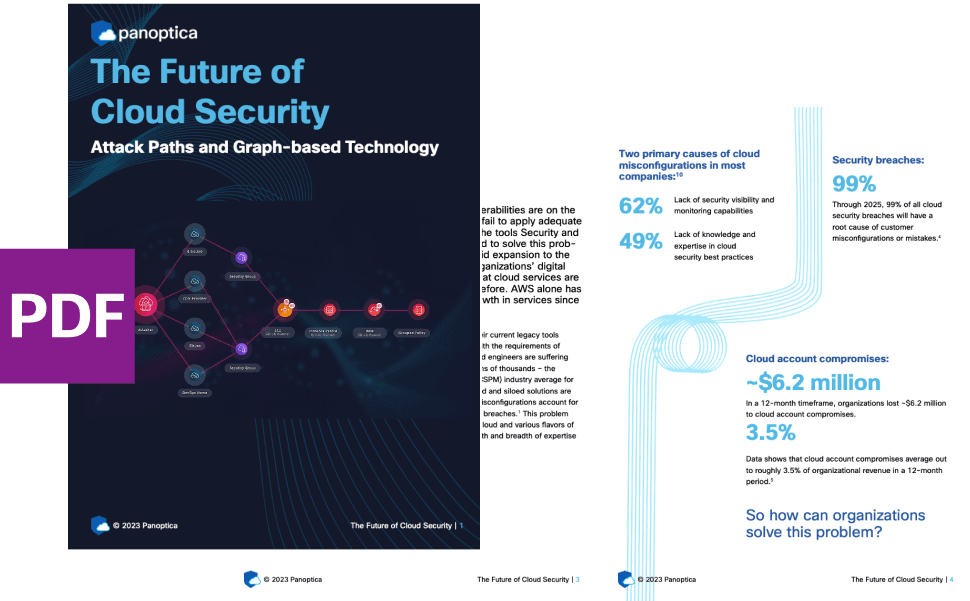Published on 00/00/0000
Last updated on 00/00/0000
Published on 00/00/0000
Last updated on 00/00/0000
Share
Share
INSIDE OUTSHIFT
7 min read

Share
When Outshift’s senior director of product management, Alex Jauch, was invited to lead a product team at Cisco last year, he hesitated.
However, after learning about Outshift’s mission to be Cisco’s hub for emerging technology and incubation, he enthusiastically accepted. The role, focused on launching new products to market, was a perfect fit for Jauch’s experience and passion for cutting-edge technologies.
“The notion that Outshift is pioneering new things, and the rest of Cisco will benefit and learn from them, that’s the part of Cisco I want to be in; that’s a good day for me,” Jauch says.
Innovation has defined Jauch’s 30-year tech industry career. Nearly a year later in his position, Jauch leads the team in delivering Panoptica, Cisco's platform for cloud-native application security.
With Cisco’s scale and resources, Outshift provides fertile ground for a dedicated team of innovators to develop the next big technological breakthrough. Pushing boundaries and diverging from conventional norms is simply ingrained in Outshift’s DNA. “We have this license to go off and experiment, which is just fun,” Jauch says.
A distinct energy and buzz surround the work. “There’s a special type of momentum about the work we’re doing at Outshift,” Jauch says. He believes this comes from a team-wide intrinsic desire for continuous learning. Some things can’t be mandated. They need to come from within. “You can’t force people to do this type of work; they have to want to do it,” he adds.
Staying curious about new ideas hasn’t been an issue for Jauch. His fascination with emerging technology started as a hobby in high school when he wrote his first program on a computer that he bought used and customized. This early exposure to technology eventually led him to his career choice. “The interest in emerging tech came first, the career came second,” Jauch says.
Jauch started his career in tech at Microsoft as a professional services consultant. Diverse roles in program management, pre-sales engineering, and leadership followed, where he gained first-hand experience engaging with customers.
Eventually, he realized that he wanted to make products. However, this brought about a dilemma. At this point in his career, he hadn’t written code in 15 years: “Clearly, I wasn’t going to be an engineer, so I decided I wanted to be a product manager,” he says.
But after deciding on product management, he found himself at another impasse. He couldn’t transition into a product role. Instead, he found the next best thing. He became a technical marketing engineer at NetApp, where he would sit on a product team. Here, Jauch learned the ins and outs of product management and further developed his love for the role. The experience would ultimately lead him to his first product manager role.
Following a successful transition into a product management career path, Jauch had another decisive moment: to work on cloud technologies exclusively. To make this a tangible vision, he joined the VMWare Cloud Team, which was still in its infancy at the time. “When I joined the VMWare Cloud team, the product was just a PowerPoint. We joked that it wasn’t even a good PowerPoint,” Jauch says.
Despite humble beginnings, this opportunity would be an inaugural milestone in Jauch’s career. It’d be the first time he’d launch a new product.
“I literally sat in a room and helped present the concept to the CEO at the time,” Jauch says. “We went from the basic idea, getting buy-in to build it, and launching it. I onboarded our very first customer.”
Jauch’s background in leadership and professional services roles proved extremely useful as a product manager. These past experiences served as a training ground for understanding customer needs and pain points. “Coming into a product role as a former field person gave me a different viewpoint,” he says.
According to Jauch, product managers need an innate ability to balance a customer-centric lens and business needs. Living with the perspective that at the heart of every successful product is a deep understanding of the customer isn’t just a theory for Jauch. It’s a deep-seated belief.
“Product management always comes back to the customer. You have to care about the customer’s pain and have empathy,” Jauch says.
From his perspective, product managers uniquely perceive their environment. The discipline isn’t merely about conducting interviews or statistical analysis. The human touch holds significant value in enabling success in the field. Despite a technology-driven world, product management relies heavily on an individual’s soft skills.
Empathy, curiosity, and an analytical mindset separate exceptional product managers from good ones. Jauch believes mastering these traits gives product managers their magic touch when building great products: “A really good product manager just knows how to make a customer happy.”
Panoptica is the sixth enterprise SaaS platform of Jauch’s career. Although his experience at Outshift has similarities to launching the VMWare Cloud, it presents new challenges.
In his current role, he’s had to unite disparate teams from several recent Cisco acquisitions into one cohesive team. Combining these high-performing teams into one is intricate and demanding, but it’s the type of challenge that keeps him thoroughly engaged.
“A lot of alignment, motivation, training, culture, and enablement has to happen to ship software efficiently, and that process fascinates me. It all has to work together,” he says.
As a leader, the true reward comes when he sees his team overcome struggles and adversity to achieve success. Watching his team exceed their expectations and accomplish feats that were deemed unattainable makes his work meaningful.
As a tech veteran, Jauch has seen several significant shifts in the industry, from the rise of the internet to the ubiquity of e-commerce and the mobile revolution. “All the technologies and products I learned then are gone now,” he says.
Reflecting on the fall of WordPerfect and Netscape, Jauch calls out that resistance to change leads to obsolescence. “You go from being the number one dominant player in the industry to closing your business. That happens in software all the time. Most other industries don’t do that,” Jauch says.
With an industry in constant motion, companies must learn, adapt, and innovate — or risk becoming a footnote. To combat this, Jauch has put continuous learning at the center of his career. It’s not if a change happens, but rather when and being able to adapt and innovate to stay relevant.
“What the sum of my time in the industry has taught me is that you grow, or you die. Nothing you’re going to do today is going to be super useful ten years from now,” he says.
As history has shown, monumental changes like these don’t happen overnight. Instead, their impact is rolled out over several years. It’s a movie that Jauch has seen the ending of quite a few times. The forthcoming wave of transformation with GenAI is the latest shift he’s excited to witness.
Looking forward to the future, he expects consumers' cognitive burden when interacting with a product or system to fade away. “If you come to me and say, there’s this magical special query language that you have to learn to get value from my product, and it’s going to take days, weeks, or months to learn it, and you’ll have to take classes — that’s not going to fly,” Jauch says.
Read more stories in our How It’s Made series, starting with Papi Menon, Outshift's VP of product, on how emerging tech redefines our world.


Get emerging insights on emerging technology straight to your inbox.
Discover why security teams rely on Panoptica's graph-based technology to navigate and prioritize risks across multi-cloud landscapes, enhancing accuracy and resilience in safeguarding diverse ecosystems.


The Shift is Outshift’s exclusive newsletter.
Get the latest news and updates on generative AI, quantum computing, and other groundbreaking innovations shaping the future of technology.
